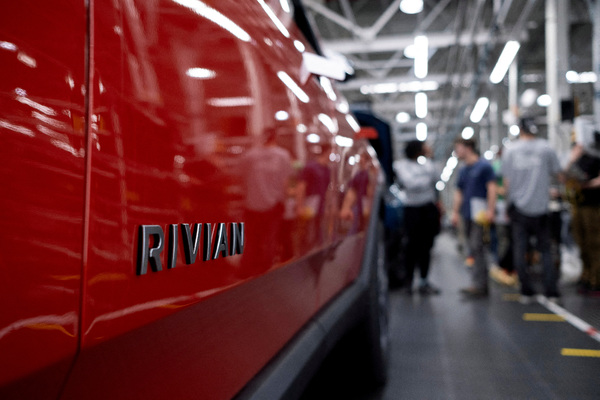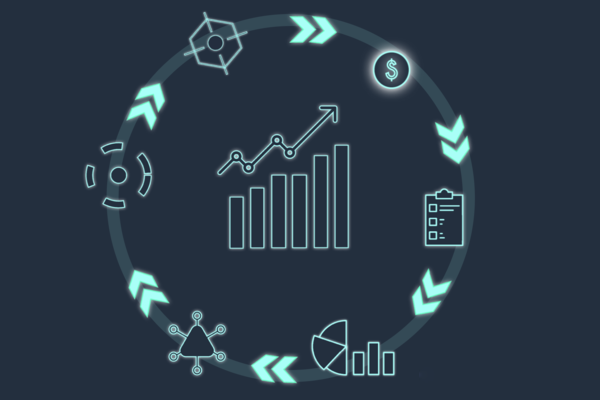The future of digital transformation
Sponsored by Freeman Clarke
Let’s start with a definition. For us at Freeman Clarke, digital transformation means using IT and technology to dramatically change your business for the better.
That may mean a custom or bespoke software product. Or it may mean integrating your systems on the back end, or a complete overhaul of your IT systems and suppliers. Whatever the tech issues, it means focusing on your customers, your market and your risks. Every choice is to ensure that the internal operation of your company is not limiting its growth.
Another important point is that the transformation is individual to your company. There is no one-size-fits-all solution, and anyone telling you so is after your wallet.
That doesn’t mean we won’t see big changes in the next few years. Again and again we’ve watched as what used to seem like extraordinary technologies – such as voice recognition, complex mapping and routing, and software robots – quietly become a part of the everyday life of a mid-market company.
Similarly, though the excitement about drone deliveries and artificial intelligence seems to have faded, we still think they’re coming. Whenever I see such innovations being tested, I think they’re important guides to what will gradually come to our sector, the mid-market.
How the pandemic transformed digital transformation
Before we get into what’s coming, it’s useful to look back. The pandemic changed digital transformation in two fundamental ways.
First, everything went online, and faster than we had thought possible. Everyone now expects online sales, service and support. Business and domestic consumers rapidly adopted online channels for finding and buying a wide range of products and services. This also extended to after-sales and reordering, which are online now in a way that seemed unlikely in 2019.
Similarly, paper is on its way out. Cash has been sidelined by electronic payment. Printed brochures and catalogues have disappeared from many sectors. (In fact, if your business is still reliant on paper, that would be the place to start a digital transformation of your company. More ideas here.)
Second, we saw a rapid shift to remote work. Not that it was a simple process: we saw business struggle when their systems and processes were badly integrated and ill-defined. But everyone, whether they liked it or not, quickly got used to collaborating online.
In every situation above, old-fashioned managers were saying, “It will never work.” Which leads to the conclusion that often digital transformation is driven by attitude rather than what is technically possible. And attitudes have changed irreversibly.
What’s coming to the mid-market
For many mid-market businesses, the next phase of digital transformation will focus on the following:
- Data, data, data. It’s never been easier to accumulate data. Companies will leverage these new assets for smarter use by humans and AI. Combining data from different sources is now far easier, and cloud-based processing allows for rapid insights that would have been unthinkable even quite recently. The businesses that adopt data visualisation technologies, simple machine learning and process automation will have a competitive advantage.
- External integration. Internal integration and adoption of the cloud should be in the rear-view mirror. (If that doesn’t describe your situation, that’s the first step to transforming your company.) Businesses should only select tech products that support integration and should gravitate towards suppliers, customers and partners who form integrated communities. Because integrated communities will outperform those that are not.
- Points of difference. As cutting-edge technology becomes more widely available, companies will have to work harder to distinguish themselves by their actual product or service. Their brand really must mean something, and they really do need a competitive edge. For example, now any company can stream movies like Netflix does; Disney+ has surged ahead on the strength of its content.
- Environmental, social, and governance concerns. Both regulators and consumers will insist upon more transparency when it comes to data use and environmental sustainability. Traceability of products, optimisation of materials and energy consumption, privacy, security and justifiable decision-making will all become part of the digital transformation agenda.
- Virtual currency. Products and services will be increasingly virtual and paid for with virtual currency. It remains to be seen which form of digital currency will prevail. But mid-market companies need to tune into this accelerating change and invest in new types of virtual storefronts and virtual branding. Though we hate to use the term, this is the metaverse.
What hasn’t changed – and likely never will?
Most mid-market businesses are deeply concerned about supply chain issues, recruitment and energy costs. New technologies – and the judicious application of existing solutions – can ease all these issues, but only if you successfully meet human needs at the same time.
Zoom and shared docs are no substitute for real face-to-face collaboration. You cannot have a real creative discussion, shift entrenched opinions or lift someone’s spirits online. Digital transformation can drive everyday productivity. But for most people, an enjoyable job also means human contact.
Most people also want their company to have a vision beyond profit. They want to draw more from their work than just their salary. Digital transformation can absolutely make a difference in a mid-market business – but only when you include the human factor.
No matter your sector or the size of your business, a digital transformation won’t take unless your staff feel included and valued.
With all that in mind, now it’s time to think about your company. If you could redo your IT and technology with a magic wand, how would you do things differently? What barriers to growth would you remove?
Here are 10 ideas to start your Digital Transformation Journey. And for a no-strings, no-pressure conversation about the digital transformation opportunities within your own business, get in touch.
By Graeme Freeman

Business Reporter Team
Most Viewed
Winston House, 3rd Floor, Units 306-309, 2-4 Dollis Park, London, N3 1HF
23-29 Hendon Lane, London, N3 1RT
020 8349 4363
© 2025, Lyonsdown Limited. Business Reporter® is a registered trademark of Lyonsdown Ltd. VAT registration number: 830519543




